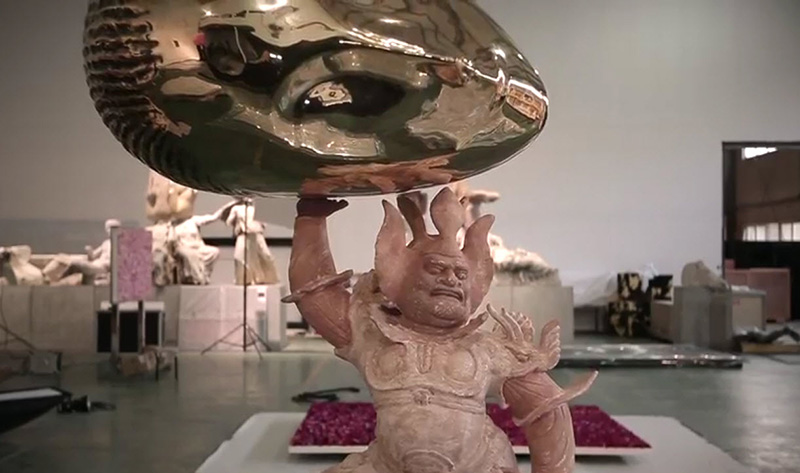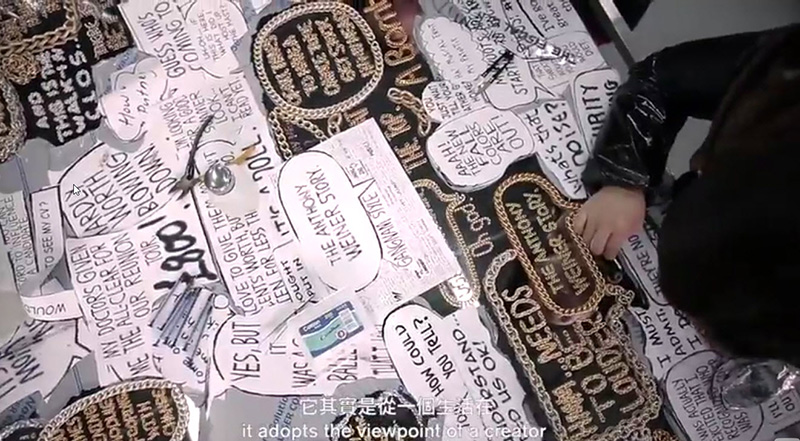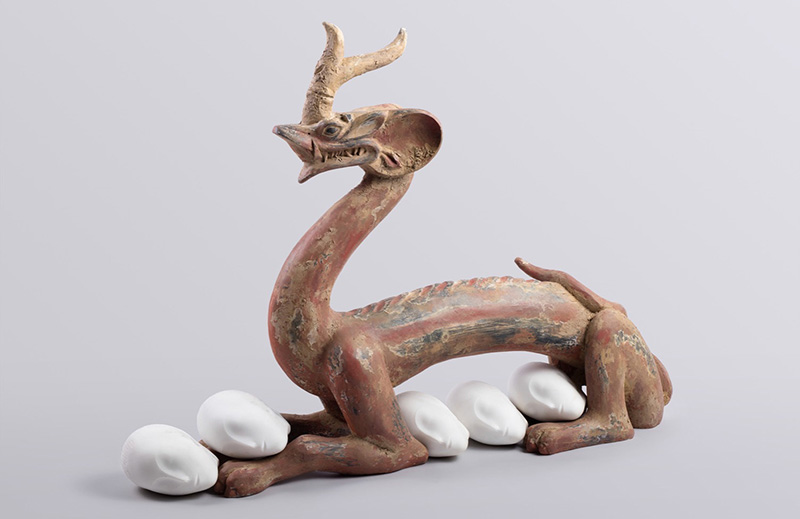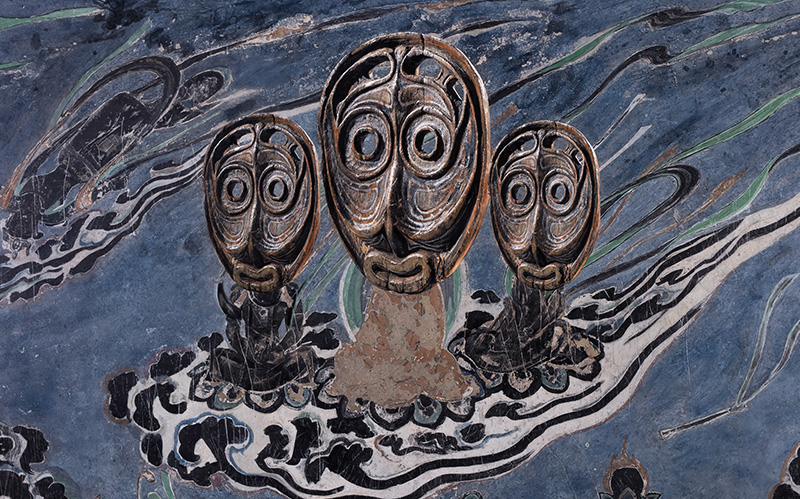ART CITIES:Paris-Xu Zhen
 Xu Zhen is a conceptual artist whose work often takes the form of provocative sculptures, installations and interventions that confront sociopolitical taboos in contemporary China and freely manipulate western expectations of Chinese art and commerce. In 2009 Xu Zhen subsumed his individual artistic identity and transformed into MadeIn -an “art creation company.” Subsequently in 2013, MadeIn launched a brand – Xu Zhen, redundantly making Xu a product of his own corporation.
Xu Zhen is a conceptual artist whose work often takes the form of provocative sculptures, installations and interventions that confront sociopolitical taboos in contemporary China and freely manipulate western expectations of Chinese art and commerce. In 2009 Xu Zhen subsumed his individual artistic identity and transformed into MadeIn -an “art creation company.” Subsequently in 2013, MadeIn launched a brand – Xu Zhen, redundantly making Xu a product of his own corporation.
By Dimitris Lempesis
Photo: Perrotin Gallery Archive
“Civilization Iteration” is the name of the first solo exhibition of Xu Zhen with the Perrotin Gallery, the exhibition showcases Xu’s important series of works since 2013 when he started a brand in his own name. “Iteration” refers to the way of achieving a desired result through repeated feedback. The exhibited series shows how an artist, amidst increasing globalization and networking of art, can approach the future of art with his own formula. The title of the “Under Heaven” series echoes heaven as a metaphor. The paintings appeared in the 2014 Armory Show in New York to serve the commercial campaign for the fair itself. Layers and layers of oil paint form an ornate “Landscape”, and with the depiction and figuration of a cream piping bag they make up an enticing visual banquet. In the “Metal Language” series, phrases from political cartoons are presented in an intensive manner on a mirrorfinished metal surface. The graffiti-like composition seemingly agrees with the radical stance of the political language but is in fact betrayed by the extravagance of the metallic gloss. His series “Eternity” and “Evolution” reference a far more expansive, long-lasting civilized world than the consumer society. Ancient art pieces, Dunhuang frescoes from the Silk Road’s heyday, representative modernist sculptures of the West…when we see these cultural symbols repeatedly change shape or re-combined in new ways, we cannot help but feel an implosion of meaning set off by the accumulated spiritual force of culture.This force comes not only from the cultural symbols being used; it is in a way more the cultural changes induced by the globalizing Internet. In a modern context, we tend to identify Greek sculptures solely by their greyish white plaster, forgetting that they were originally divine statues with colors. The truth behind cultural relics is ever elusive to the museum visitor. Between the colorful Greek statues and the modern white plaster versions, and the Acropolis in Athens and sculpture photos on electronic screens, is the loss of a common context.
Info: Perrotin Gallery, 76 rue De Turenne, Paris, Duration: 18/5-29/7/17, Days & Hours: Tue-Sat 11:00-19:00, www.perrotin.com



